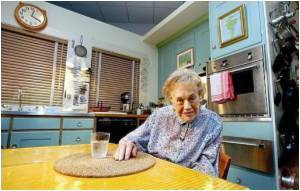Home cooked meals are still a hot favourite with British families, says a researcher.

"I expected them to be more about take-out and eating out," he says.
When he asked why, they cited three reasons - cash control, connectedness and life skills.
Control on cash also extended to control over what the family is eating.
"It allowed them to exclude certain foods they didn't want - people talked about not having preservatives and junk foods," Simmons says.
Connectedness meant sitting together with family at a meal, and also to connect to their heritage, with immigrants in particular wanting to enjoy the foods of their homeland.
Advertisement
Simmons says plenty about cooking has changed. Teens are less likely to see cooking as a gender-specific activity and the actual skills needed for home cooking have changed. Fifty years ago, cooks may have needed to be able to tell when home-baked bread was done, but they didn't know how to microwave; today, they do.
Advertisement
Simmons also said that despite innovations in technology, cooking is about more than heating and preparing food.
"Cooking has meaning beyond feeding ourselves. It's more than just a laboratory process. It has to do with control over food, with independence, and with connecting with each other."
Source-ANI
TAN









